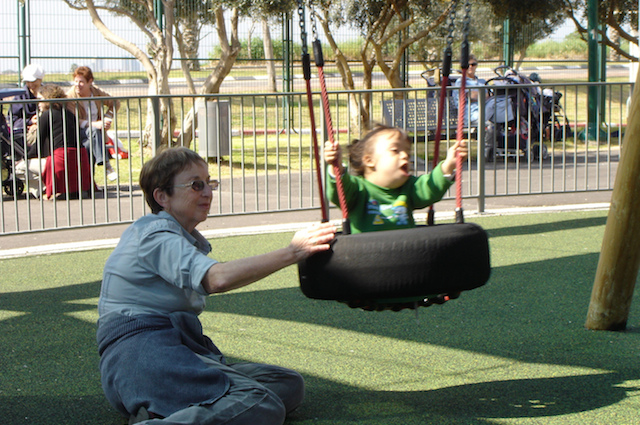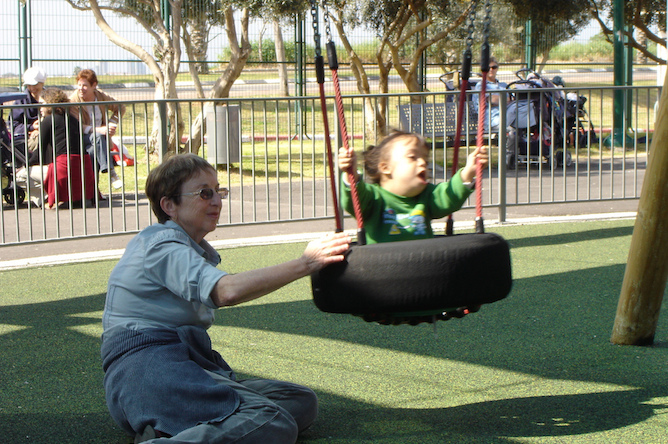
While Turkish and Israeli politicians work out their diplomatic differences, on the ground cooperation between the two countries continues to flourish quietly. One of the latest examples is Beit Issie Shapiro’s participation in the International Play Association’s 19th Triennial World Conference in Istanbul, whose theme was “Access to Play.”
The Israeli nonprofit, which is a leading provider and innovator of therapies for disabilities, won the International Play Association’s 2014 Right to Play Award, along with the Halabja Community Play project in Iraq and the Playful Garden in Czechoslovakia.
Shosh Kaminsky, director of development and knowledge management at Beit Issie Shapiro, presented a workshop in Turkey with Marnie Norris, director of programs at US nonprofit Shane’s Inspiration, which is one of the organization’s global collaborative partners.
“Our theme was building social bridges, how inclusive playgrounds create community,” said Kaminsky.
Beit Issie Shapiro pioneered its inclusive and accessible playground model in 2006 in Israel. Park Chaverim (Friendship Park) in Ra’anana gives children with and without disabilities the opportunity to play together and learn from each other, increasing awareness and acceptance.
Beit Issie Shapiro has produced a comprehensive toolkit for authorities wanting to replicate the Friendship Park model. Educational materials have been developed with Israel’s Sesame Street and the Ministry of Education, and the organization has developed the world’s first instrument to measure changes in attitudes of young children.
In Israel, there are now five inclusive parks with six more on the way, and 33 municipalities intend to duplicate Beit Issie Shapiro’s model. The goal is that in the next 10 years every city in Israel will have an inclusive park.
Last year, Beit Issie Shapiro became the first Israeli disabilities non-profit to win Special Consultative Status to the UN’s Economic and Social Council.
The organization shared its groundbreaking research into attitudes of kindergarten children toward disabilities and findings on how best to promote inclusion.
“Israel has much to offer the world in the field of disabilities. Just as we provide services to families across all sectors of Israeli society, we are happy to share our innovations with colleagues across the globe so that together we can make life easier for people with disabilities,” said Kaminsky.
“The conference was another opportunity for countries with strained – or even without — diplomatic relations with Israel to speak with us about collaboration.”














